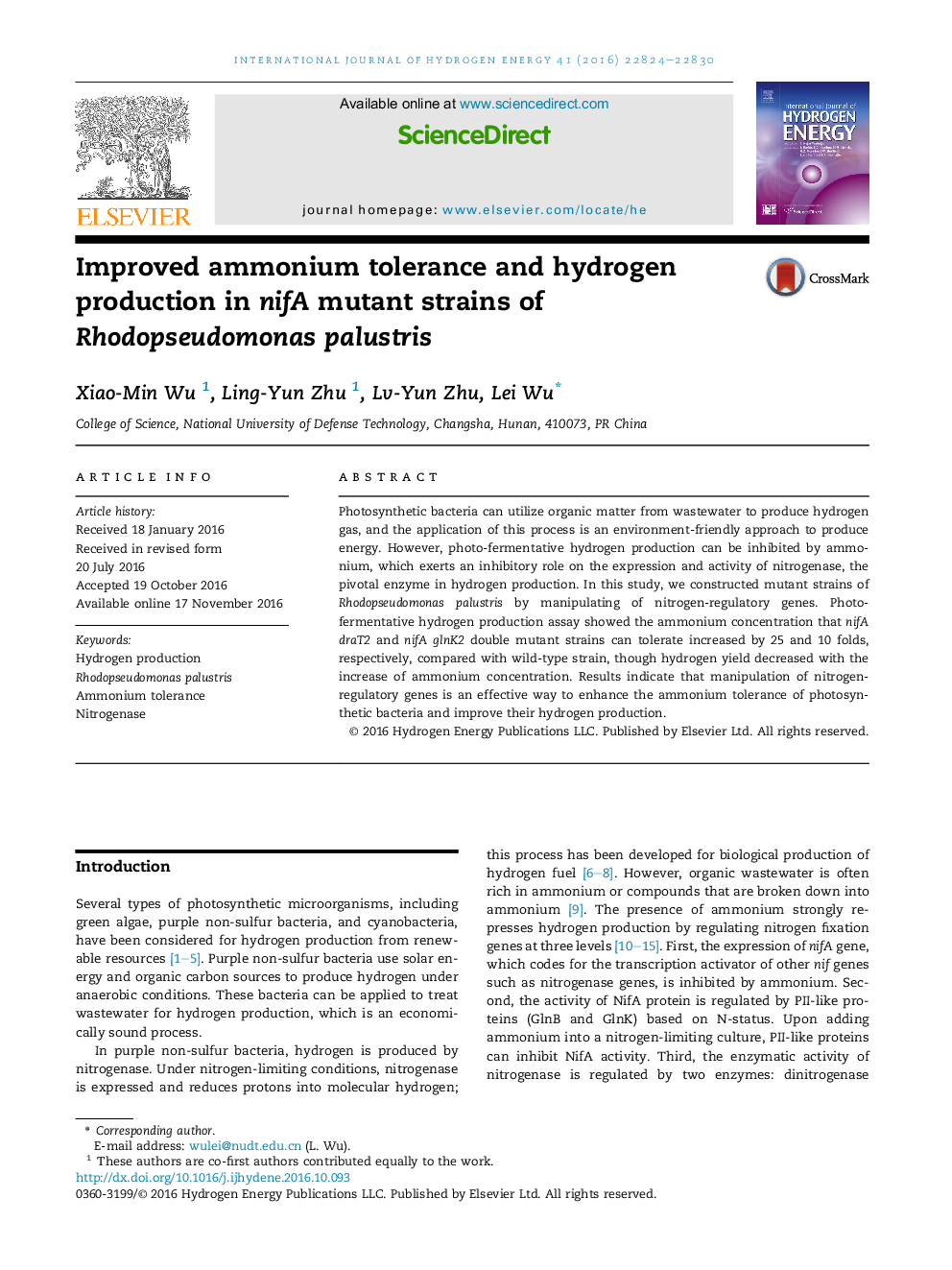| Article ID | Journal | Published Year | Pages | File Type |
|---|---|---|---|---|
| 5145804 | International Journal of Hydrogen Energy | 2016 | 7 Pages |
Abstract
Photosynthetic bacteria can utilize organic matter from wastewater to produce hydrogen gas, and the application of this process is an environment-friendly approach to produce energy. However, photo-fermentative hydrogen production can be inhibited by ammonium, which exerts an inhibitory role on the expression and activity of nitrogenase, the pivotal enzyme in hydrogen production. In this study, we constructed mutant strains of Rhodopseudomonas palustris by manipulating of nitrogen-regulatory genes. Photo-fermentative hydrogen production assay showed the ammonium concentration that nifA draT2 and nifA glnK2 double mutant strains can tolerate increased by 25 and 10 folds, respectively, compared with wild-type strain, though hydrogen yield decreased with the increase of ammonium concentration. Results indicate that manipulation of nitrogen-regulatory genes is an effective way to enhance the ammonium tolerance of photosynthetic bacteria and improve their hydrogen production.
Related Topics
Physical Sciences and Engineering
Chemistry
Electrochemistry
Authors
Xiao-Min Wu, Ling-Yun Zhu, Lv-Yun Zhu, Lei Wu,
